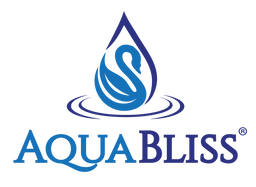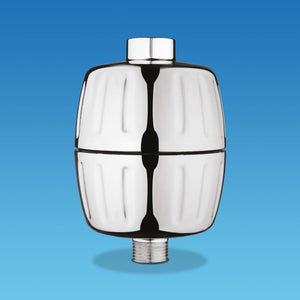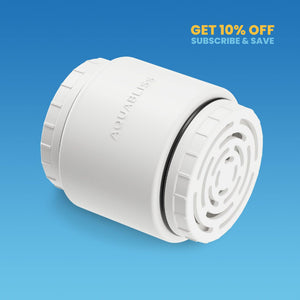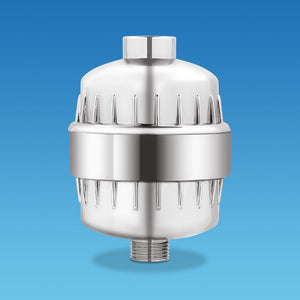Tap water plays a crucial role in our daily lives, affecting everything from drinking to cooking, washing, and showering.
Knowing your water’s hardness level is essential, as it directly impacts the health of your skin, hair, and even household appliances. Testing your water hardness can provide instant information, helping you take next steps to address any water issues.
In this post, we’ll discuss how to test water hardness using various methods, including test strips, soap tests, and water hardness test kits, to ensure you have an accurate reading.
We’ll also answer questions like “Where can I get my water tested for free?” and recommend the best shower head filters for hard water.
Is Your Tap Water Safe?

In the U.S., tap water is regulated by the Environmental Protection Agency (EPA), so it’s typically safe to drink. However, issues like mineral buildup in hard water can affect its quality and how it interacts with soap, leading to dry skin, dull hair, and even damage to water heaters and appliances.
If you’re uncertain about your tap water’s safety or hardness, check your water supplier’s Consumer Confidence Report (CCR) or consult your local water municipality.
What is Hard Water, and How Does it Affect You?
Hard water contains high levels of minerals, especially calcium and magnesium, measured in grains per gallon (gpg). While safe for drinking, hard water can cause skin dryness, mineral stains on clothes and dishes, and reduced efficiency of soaps and detergents.
Many people prefer soft water to avoid these issues and protect their plumbing and appliances.
Signs of hard water can vary, but common indicators include:
-
Mineral stains on fabrics and dishes
-
Soap scum instead of fluffy bubbles
-
Skin dryness and dull hair
-
Scale buildup on faucets and showerheads
If you notice these signs, it’s a good idea to perform a water hardness test.
How to Test Water Hardness at Home
There are several reliable ways to test your water hardness.
Here are some easy methods to get instant results:
1. Test Strips and Kits
Many online retailers offer hard water test kits and test strips for at-home use. To test your water hardness with a strip, simply fill a clear bottle or glass with a water sample, dip the strip, and wait a few seconds. Then, compare the strip’s color to the provided color chart to determine the hardness level in grains per gallon.
2. Basic Soap Test
Another simple way to test water hardness is with pure liquid soap. Fill a clear bottle halfway with water, add a few drops of soap, and shake it vigorously. If you see fluffy bubbles and clear water, it likely indicates soft water.
If you see minimal bubbles and a cloudy solution, your water may be hard. This is due to hard water’s tendency to form a precipitate with most soaps instead of creating lather.
3. Visual Inspection for Mineral Buildup
Examine your faucets, sinks, and showerheads for signs of mineral deposits. Hard water leaves behind calcium carbonate and other minerals that can accumulate over time, potentially affecting water flow and causing white or reddish stains.
What If You Have Hard Water?

Once you know how to test water hardness and identify signs of hard water, it’s time to explore solutions. Hard water not only affects skin and hair but also impacts appliances, including water heaters, which can lose efficiency due to scale buildup.
Consider the following options:
-
Water Softeners: Softening systems reduce water hardness by removing minerals like calcium and magnesium through ion exchange. Installed where water enters the house, these systems provide soft water throughout the home.
-
Shower Filters: Filters designed for hard water, like AquaBliss’s Multi-Stage Shower Filter, are perfect for showers as they prevent mineral buildup and improve skin and hair health by removing chlorine, odors, and other impurities.
Where Can I Get My Water Tested for Free?
If you want a more thorough water analysis, check with your local water municipality, which may offer free or low-cost testing.
Additionally, some third-party labs provide water testing services, or you can purchase a reliable water test kit for an accurate reading. These options allow you to better understand your tap water’s mineral content and safety.
The Bottom Line
Testing water hardness is essential for maintaining a healthy home environment. Hard water can lead to higher costs due to mineral buildup, appliance wear, and personal care issues.
For peace of mind, invest in an effective shower filter or water softener to alleviate the negative effects of hard water and improve your daily water use.
With AquaBliss’s range of shower filters, you can minimize hard water’s impact on your skin, hair, and household, making every shower a refreshing experience. Check out our selection to find the best shower head filter for hard water that meets your needs.







